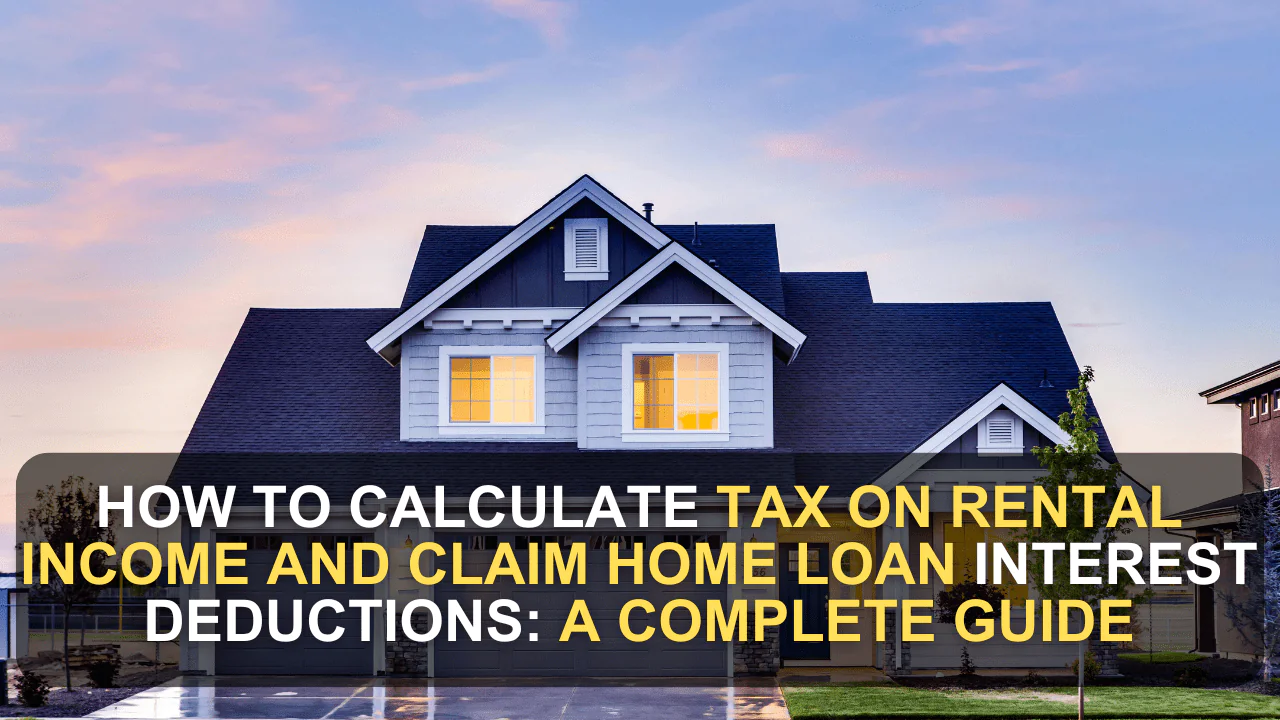Tax Implications: Rental Income and Deduction of Interest on Home Loan
Question: How is the rental income taxed, and how can I minimize the tax payable when I have to claim a deduction on interest paid on the home loan if I have let out the house for rent?
If you have bought a house through a home loan and are repaying more than ₹3,50,000 in annual interest and thus it is imperative to note the consequences of paying taxes on the rental business of the property. You are receiving ₹20,000 monthly income from a tenant, this income must be subjected to tax under the “Income from House Property” section. Now let us discuss the tax liability aspect involved in the home loan along with the exemptions that one can avail about the interest paid.
Table of Contents
Explaining Income from House Property
In India, any kind of receipt or income earned from a property either through rent or otherwise gets categorized under the head of “Income from House Property”. The following was observed: Homeowners are allowed to declare two properties as self-occupied properties that have an annual value of 0 for tax. However, this benefit only applies if the properties are used throughout the year for residential purposes by the owner and are not rented out. As your property is rented this means that it will not fall under the SOP categories.
How to Compute Taxable Income from House Property
Here’s a step-by-step calculation for determining your taxable income from the rented
Property
- Gross Annual Value (GAV): This refers to the gross rent accumulated every year and in your situation it is ₹2,40,000 (₹20,000 x 12 months).
- Less: Local Taxes: Any local taxes that have been paid by the owner in the previous year form part of deductions from the GAV. Make sure that these taxes are charged or recovered from you, the property owner.
- Net Annual Value (NAV): This is obtained by the deduction of municipal taxes from the GAV.
- Standard Deduction (Section 24(a)): As per section 24(a) of the Income Tax Act, a standard deduction of 30% of the aggregate NAV can be claimed for the computation of expenses relating to repairs, maintenance, electricity water supply, etc.
- Deduction on Home Loan Interest (Section 24(b)): If the property is let, it is possible to get a deduction on the entire interest on the home loan allowed under Section 24(b). Here, the deduction is allowed only up to ₹2 lakhs if the property is self-occupied and there is no such limitation if the property is let-out.
Important Points to Consider
Rental Agreement: Make sure that you have a valid rental agreement to support the rental income for rent claimed in the tax return.
- PAN Card Submission: If the rent of the property is more than ₹1 lakh per year, the tenant needs to submit the PAN card particulars of the property owner.
- Unrealized Rent: If out of earlier omitted rent receipt you adjust it in the later year, the aforesaid value under ‘ Income from House Property ’ will be taxed in that year. But in case of such rent arrears, you get a 30% deduction under Section 24(a).
Carry Forward of Losses
However, if, after claiming all allowable deductions on house property income, you incur a loss, you can carry forward this loss for use as a deduction in the next eight consecutive years.
Conclusion
Residents earning rental income from house property have to be very keen when claiming allowances allowed under Sections 24(a) and 24(b) of the ITA. If you follow the mechanism of computing taxable income from rental properties and the permitted deductions, you can go a long way in coming up with the lowest tax figure. Require proper documentation such as rental agreements and receipts to back up such allegations.
I hope that this detailed article will assist you in exploring the strategies for taxing rental income and claiming home loan interest deductions.




